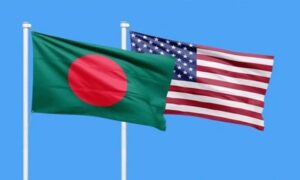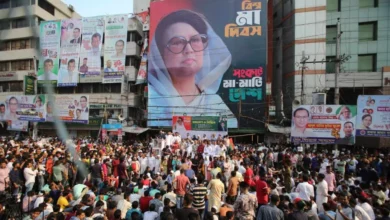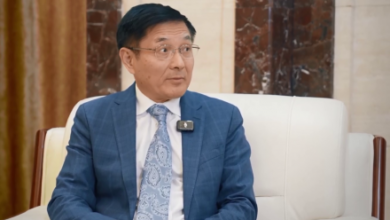A sign of a strategic shift in US relations with Bangladesh
The US has renewed cooperation with Bangladesh, signaling a strategic shift in the region. The Biden administration’s Indo-Pacific strategy has emphasized economic ties and climate change. At the same time, they are balancing democracy and human rights concerns.
Last year US Assistant Secretary of State Donald Lew visited Bangladesh to emphasize democracy ahead of the elections. Despite the threat of visa restrictions, Prime Minister Sheikh Hasina was elected in a vote held amid various complaints from the opposition. Both the United States and the United Kingdom have criticized the election as ‘not free and fair’.
But this time Lu returned to Bangladesh with a different message. He avoided meetings with opposition leaders and rights groups and focused on strengthening economic partnerships and climate initiatives.
This shift indicates that the United States is accepting the political realities of Bangladesh in restoring relations. Although Lu acknowledged that previous election warnings had raised tensions, he now stressed the need to move forward and rebuild trust.
A significant garment exporter to the United States, Bangladesh is of strategic importance to Washington. Located between India and Myanmar, the country is seen as a valuable ally in curbing China’s regional influence.
Just a month after the January election, President Joe Biden expressed his ‘sincere desire’ to work with Sheikh Hasina. They aim to tackle various issues with a common vision for a free and open Indo-Pacific.
Over the past five decades, the United States and Bangladesh have developed a complex relationship around economic, security, and multilateral issues such as climate change. The United States is Bangladesh’s top export destination, which is crucial to the growing economy. Washington has given more than 60 million covid-19 vaccinations to Bangladesh in difficult times.
Despite the positives, 2021 was a challenging year for US-Bangladesh relations. The United States has imposed sanctions on Bangladesh’s RAB for human rights violations. The Biden administration has not invited Bangladesh to the Virtual Summit for Democracy. They have consistently raised concerns about democratic backsliding and human rights violations.
China invests in Bangladesh’s infrastructure and military sectors. Bangladesh leverages its relationship with the US to negotiate well with both India and China. But increasing US-India cooperation through frameworks like the Quad has complicated this balance.
US and China interests in Bangladesh
Recently, US Under Secretary for Political Affairs Victoria Nuland visited Dhaka. He signed a draft defense cooperation agreement. Prime Minister Sheikh Hasina inaugurated a Chinese-funded power plant on the same day. This incident highlights Bangladesh’s balancing act among the great powers. Infrastructure development is Bangladesh’s priority. China is providing significant support. However, the US is Bangladesh’s largest export market, which is very important for the economy. Although the US prioritizes business and geopolitical interests in Bangladesh, it also deals with corruption and human rights issues. The recent ban on Bangladesh’s retired army chief Aziz Ahmed and his family over corruption charges underscores this view.
Analysts believe that the United States wants to maintain influence over the Bangladesh government by avoiding major diplomatic pressure. US renewed engagement with Bangladesh reflects a strategic rethink. This approach balances immediate economic and strategic interests with long-term concerns about democracy and human rights.
Source: The Rio Times, Brazil





![Mumtaz Zahra Baloch, spokesperson for Pakistan's Foreign Ministry, says the country believes in constructive dialogue with the US [Courtesy of Pakistan Ministry of Foreign Affairs]](https://southasiancorrespondent.com/wp-content/uploads/2024/06/pak-1-390x220.jpg)